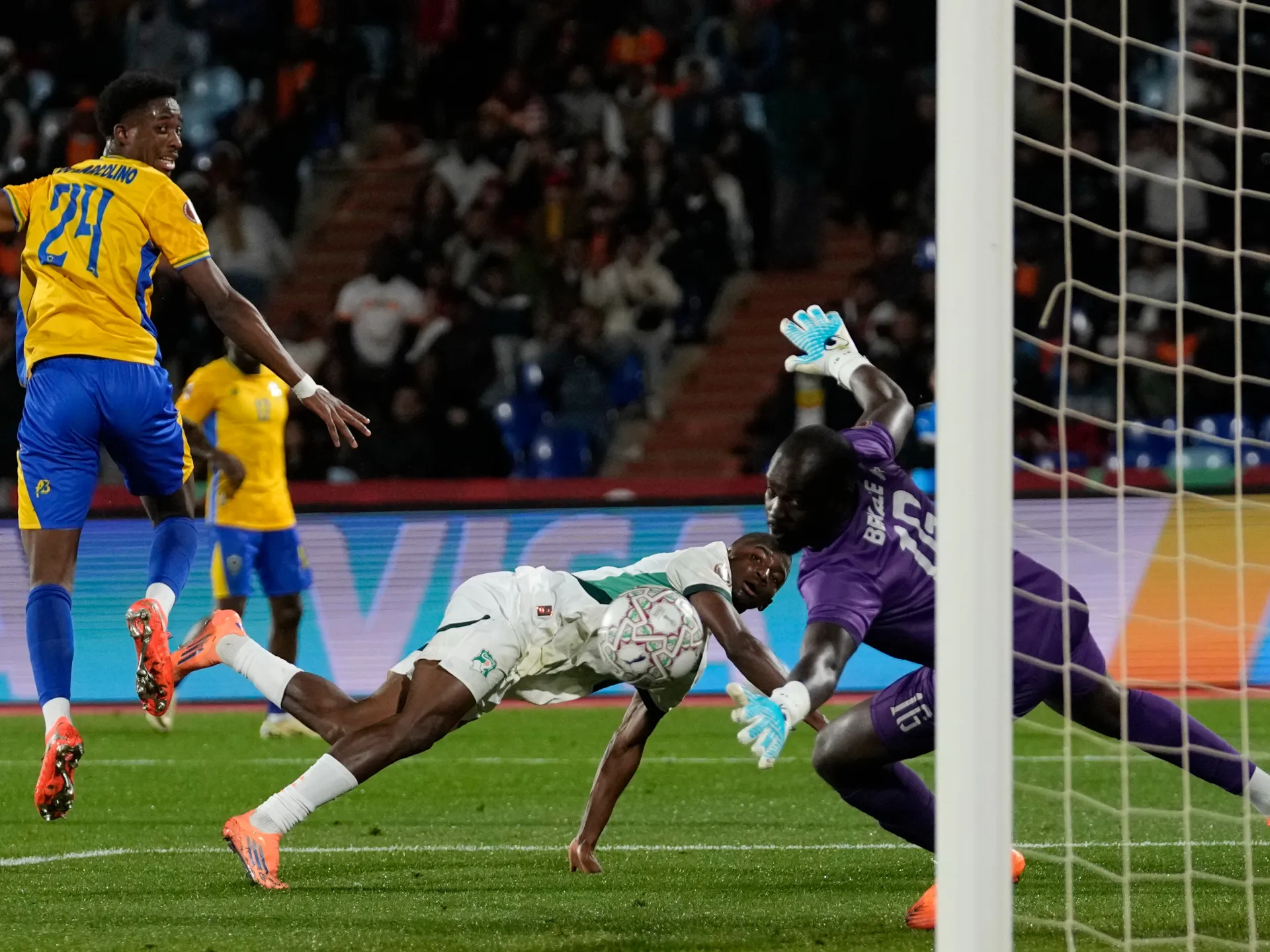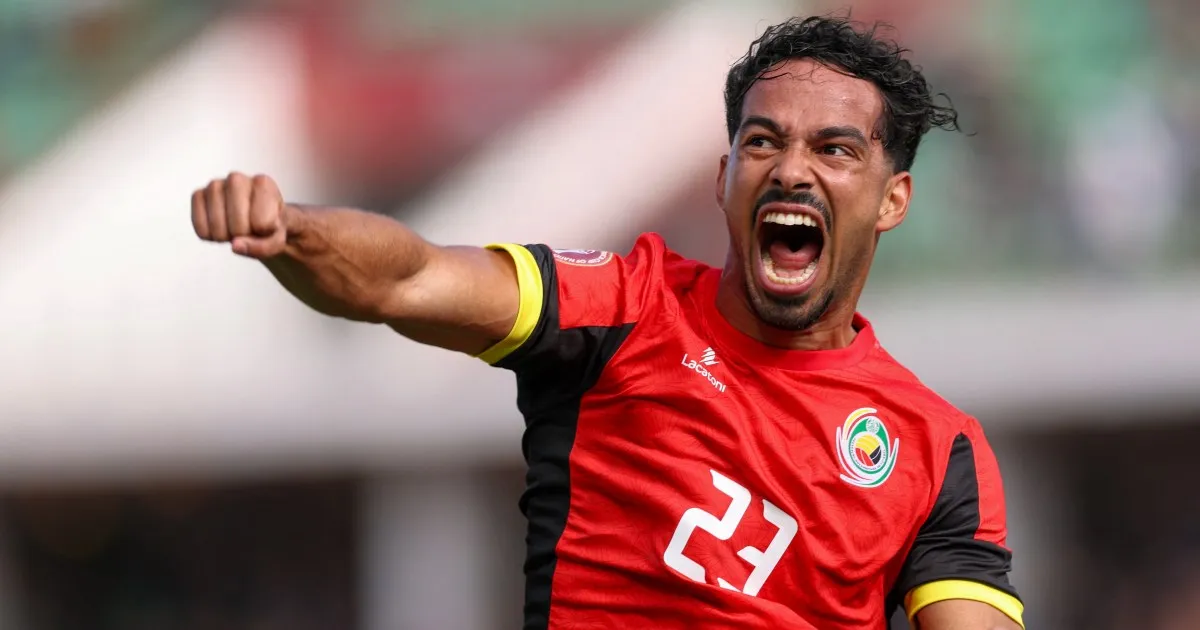Ivory Coast fight back against Gabon to top AFCON group ahead of Cameroon | Football News
Ivorians to face Burkina Faso in last 16 while Cameroon meet South Africa and Mozambique play Nigeria.
Published On 31 Dec 2025
Substitute Bazoumana Toure scored in stoppage time for Ivory Coast, who came from two goals down to beat Gabon 3-2 in Marrakesh and top Group F at the Africa Cup of Nations.
Cameroon also fell behind on Wednesday, against Mozambique in Agadir, but a thunderbolt from Christian Kofane delivered a 2-1 victory.
Recommended Stories
list of 4 itemsend of list
Defending champions Ivory Coast and Cameroon finished level on seven points, and both had a plus-two goal difference. The Ivorians topped the table because they scored five goals and Cameroon four.
The results completed the last 16 lineup. Ivory Coast will face Burkina Faso, Cameroon meet South Africa and Mozambique face Nigeria.
In Marrakesh, Gabon rocked Ivory Coast by building a two-goal lead midway through the first half before the title-holders cut the deficit just before the break to trail 2-1 at half-time.
Guelor Kanga struck after 11 minutes for the Gabonese Panthers, whose best-known footballer, Pierre-Emerick Aubameyang, had returned to France for treatment of a thigh injury.
The 2015 African player of the year scored in a 3-2 loss to Mozambique three days ago that eliminated Gabon from the race to be among the 16 qualifiers for the knockout stage.
Ivory Coast fell further behind on 21 minutes when Los Angeles-based Denis Bouanga claimed his first goal of the tournament.
Ivorian Jean-Philippe Krasso netted on 44 minutes after being set up by Wilfried Zaha, the former Crystal Palace winger recalled for the AFCON after missing the triumphant 2024 campaign.
The defending champions took off captain Franck Kessie and Zaha halfway through the second half, but Amad Diallo, who scored in the first two group matches, remained on the bench.
Manchester United winger Diallo was finally introduced on 76 minutes, replacing Oumar Diakite, who was walking a disciplinary tightrope having been yellow-carded.
It was another substitute, Evann Guessand, who equalised with six minutes of regular time left. The Aston Villa striker was a late inclusion in the squad when injured Sebastien Haller withdrew.
In the southern coastal city of Agadir, Cameroon legends Roger Milla and Samuel Eto’o were among the crowd that saw Mozambique take a surprise lead on 23 minutes.
Geny Catamo from leading Portuguese club Sporting unleashed a low shot that bounced in front of goalkeeper Devis Epassy and flew just inside the left post.
The lead lasted five minutes before five-time champions Cameroon levelled when Feliciano ‘Nene’ Jone conceded an own goal.
Facing two unmarked Cameroonian attackers, goalkeeper Ivane Urrubal blocked the ball, which ran loose to Frank Magri.
Magri hit the post and Nene, attempting to clear, managed only to steer the ball into the Mozambican net.
Cameroon had the ball in the net again 10 minutes later, but the scorer, Germany-based 19-year-old Christian Kofane, was ruled offside.
The teen made up for his disappointment by putting the Indomitable Lions ahead on 55 minutes with a fierce shot from outside the box that flew into the net off the underside of the crossbar.

